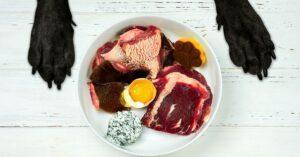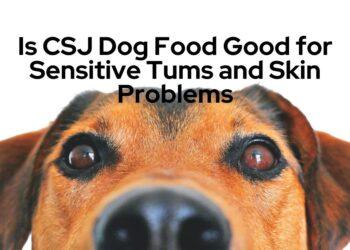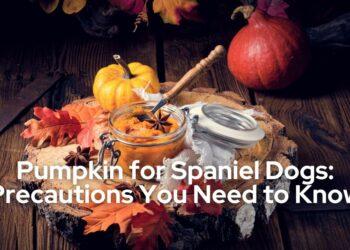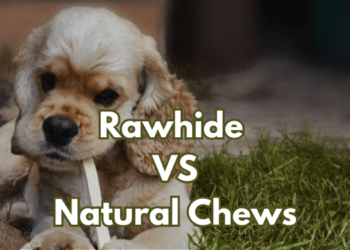With raw feed gaining popularity all over, you must have witnessed many ‘dog influencers’ cracking raw eggs over their dog’s food. But is the practice really as beneficial as they claim or is it harmful to the dog’s health in the long run??? Let’s uncover the facts.
Table of Contents
Is cracking raw egg overdog food safe for the dog?
Although raw eggs are the storehouse of a myriad of essential nutrients, cracking a raw egg over dog food is a bad idea. Raw eggs are often filled with the fatal E.Coli and Salmonella, bacteria that causes bloody diarrhea in canines and can lead to much more severe medical issues. However, this doesn’t always happen and therefore you can find both supporters and protesters of this particular diet type.
To understand this notion better, here is a breakdown of the benefits and risks associated with adding raw eggs over your typical dog food.
What are the benefits and risks of feeding raw eggs to dogs?
Starting with the benefits, raw eggs have:
A high source of vitamins
Unlike cooked eggs, raw eggs have a relatively high amount of vitamins and minerals. This includes niacin, riboflavin, folic acid, Vitamin B complex, and Vitamins A, D, E, and K. All of these components work together to aid in their overall growth, immune system enhancement and even support their metabolic processes, when administered properly and in the right dosage. Therefore the puppies grow out stronger and much more healthier than the pups that don’t have raw eggs added over their food.
Store house of essential nutrients
Raw eggs are a wonderful source of almost all essential proteins, amino acids and fatty acids. With a majority of its content being rich in protein, and the other halves consisting of both Omega-3, and 6 fatty acids and all 20 of the essential amino acids, consumption of raw eggs in little pups offers a myriad of health benefits.
Some of these include a shiny and healthy coat, protection from infections and allergies, faster recovery from injuries, strong muscle and bone development, and much more. Unfortunately, half of these highly essential nutrients are not found in commercial dog feeds, and therefore administration of raw eggs in canines in a controlled manner can be quite beneficial.
Helps with Arthritis
According to a study that included 51 dogs, it has been proven that egg shells are super advantageous for canines with arthritis. Rich in calcium, magnesium, phosphorus and other trace minerals, canine supplements made of the white casings have shown incredible transformations in such pups.
When administered after a thorough vet checkup, pet parents can witness a substantial improvement in the pain management as well as the overall health of the pup. And on the bonus side, egg shells rarely cause any side effects in puppies, no matter their life stage.
A great appetizer
Now this is no secret that dogs adore the smell of raw eggs. Just put an egg or two and watch how the pup munches down all their feed happily, leaving the bowl seeming perfectly clean.
So not only are raw eggs over dog food nutritionally sufficient but also make a good option for pet parents with picky eaters or canines that are currently recovering and need to gain healthy weight. When combined, the pup will not only find their regular feed to be much more appealing but the eggs will also add extra good calories, aiding in the eventual gain of muscles.
Now moving on to the disadvantages of feeding raw eggs to dogs:
Exposure to fatal bacteria
Even though the frequency of dogs contracting E.Coli and Salmonella from raw eggs is rather low, you never know when the pup might get sick by consuming contaminated eggs. When affected the canines get super sick and have bloody diarrhea, coupled with increased mucus secretion with blood tinges. In such cases, immediate vet attention is required as delaying further will only lead to fatal circumstances.
Contaminated eggs can also lead to an upset stomach, if not bacterial infections. And therefore, many vets often prescribe administration of thoroughly cooked eggs in canines, contrary to raw eggs. The cooking procedure aids in the eradication of any microbes that may be present in the yolk, making the eggs safe for consumption.
Not suitable for Sensitive Canines
Avidin, a protein mostly found in raw egg whites, is quite unpopular as its consumption often causes stomach and intestinal issues in canines. When inside the body, the protein interferes with the normal functioning of intestines, thereby preventing absorption of several essential vitamins.
As a result, the dog grows weak, lethargic and even shows anemia related signs and symptoms, unless treated with the right treatment options. Delayed diagnosis can also lead to further extremities, putting the pup through a lot of discomfort and pain.
Apart from that, certain sensitive pooches may start developing allergic reactions, given the huge amount of proteins in raw eggs. This can eventually lead to worsening of their skin, extreme itching, swelling, redness, pus formation, and whatnot.
Heightened risk of obesity
With such a high protein and calorie diet, another risk is uncontrollable weight gain. An excess of the nutrients could cause nutritional imbalances within their body, leading to excess fat layer accumulation and therefore weight gain. Such pups could easily become obese, worsening their quality of life by pacifying the onset of a number of health conditions.
This is why, when administering raw eggs, it is advised to do so in moderation. As a responsible pet parent, you will need to keep track of whatever feed your dog eats and likewise manage their weight.
Are Cooked Eggs better than Raw Eggs?
Even though cooked eggs lose certain nutrients during the cooking process, they are a much safer substitute to raw eggs. They are tasty, have an impeccable smell, are easy to digest and pose no choking or contamination hazards.
However, to make them entirely safe for the canine, pawrents need to remember a few points. This includes:
- No over-frying or cooking of the egg
- Minimal use of cooking oil
- Inclusion of onions, garlics, and other spices is a big no
- Not adding salt is okay, but if you do make sure to add only the required amount
Following through these above-stated points will make the feed both enjoyable and highly nutritious for the pup.
How often can I add raw eggs to my dog’s food?
On an average raw eggs can be added to the dog’s diet once or twice a week, however the exact frequency will vary from pup to pup. A lot of factors come into play when deciding the correct timing of introducing raw eggs over dog food and therefore seeking a professional’s help is the best bet.
When consulted, the vet will prepare a detailed nutritional chart for your dog based upon their present health condition, immune system capacity, and any prevailing health issues. They will also check for any potential side effects that may happen due to the diet change. Once everything is okay, you can then add raw egg over dog food as prescribed by the professional.
For more interesting updates like these, subscribe to our mailing list today at spanieldogs.com.
Reference:
- healthyhomemadedogtreats.com/can-you-include-raw-eggs-in-your-homemade-dog-treat/
- dogsandclogs.com/cracked-raw-egg-over-dog-food/
- ncbi.nlm.nih.gov/pmc/articles/PMC6044796/
- dogloversdigest.com/cracked-raw-egg-over-dog-food/
- petfoodreviewer.com/can-i-add-a-cracked-raw-egg-over-dog-food/
- cdc.gov/salmonella/dog-food-05-12/pet-owners-info.html#:~:text=Dogs%20and%20cats%20that%20become,%2C%20fever%2C%20and%20excess%20salivation.
If you are a dog lover then, Subscribe to our weekly newsletters. No Spams!










